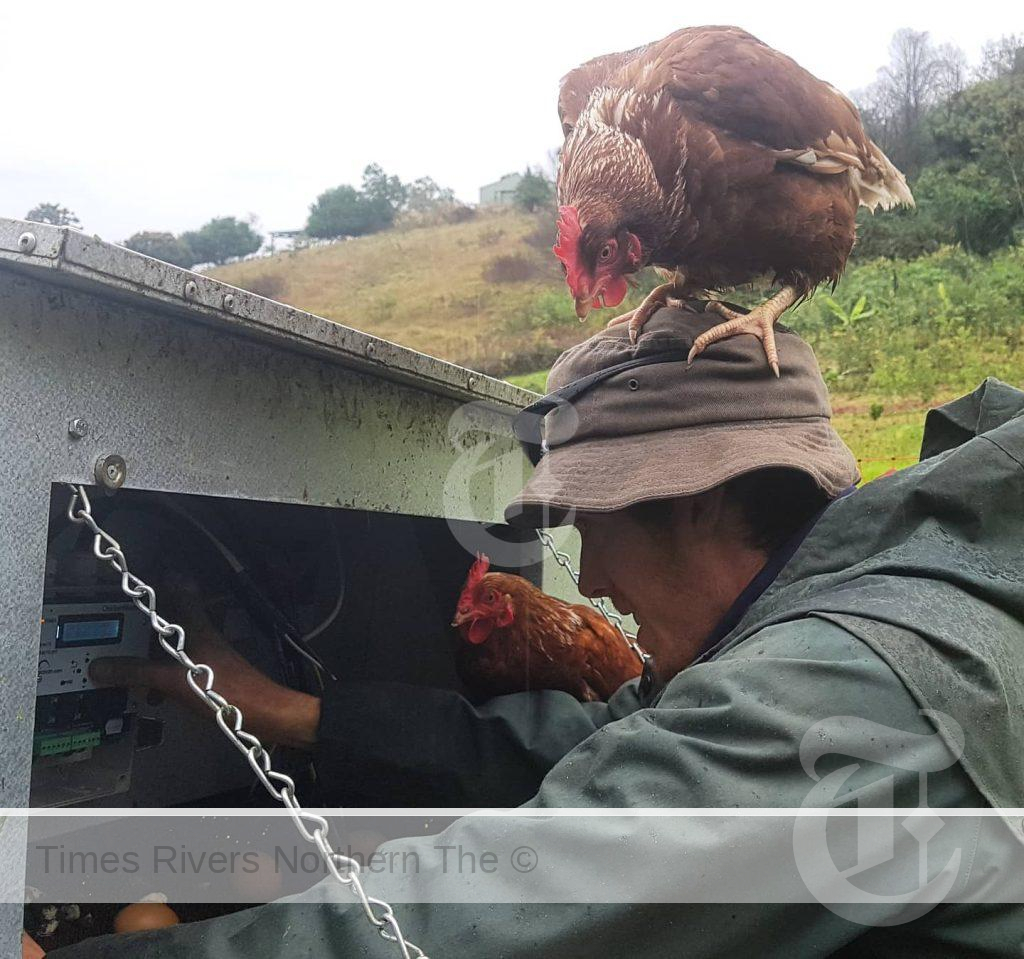Organic Growth: Toby O’Grady’s journey from volunteer farmer to sustainable agriculture business owner
By Sarah Waters
The closest Toby O’Grady got to farming when he was young, was kicking a soccer ball behind the cane fields in Condong.
He wasn’t born into farming and didn’t really think about it until he travelled to Europe at the age of 20 and an opportunity to volunteer on a crop farm came up.
“2015 was when I first discovered farming, and that was via traveling as a way to see the world but in a really affordable way by volunteering,” Toby said.
“I just happened to have some really good volunteers around me, who taught me about what agriculture is and how important it is.”
For two years Toby worked on farms in England, including orchards, egg production farms and mixed vegetable farms, which all focused on selling direct to customers.
When he arrived home, he sought job opportunities on farms in NSW which focused on regenerative agriculture.
As his experience and passion in land rehabilitation and sustainable organic farming practices grew, he decided it was time to start his own farm.
In 2022, he put out a call to landowners in the Northern Rivers looking for land to lease for his ‘Ag-Venture’ which would produce certified organic fruit and vegetables, he could sell.
“I always wanted to do it myself – put into practice the things that I’ve learnt and do different trials and innovations.
“Even though we’ve been farming as a civilisation for many thousands of years, we still haven’t fully figured it out.
“I also wanted to get into the environmental side of it and the clean food side of it.”
Toby received more than 30 offers from landowners, but he decided to choose a three-acre plot of land at ‘Johny’s Garden’ in Duranbah to farm.
The area is known for its ferrosols (krasnozem) soil, which has favourable agronomic properties.
Toby put together a strategy on how he could make an income, while practising new farming methods and focusing on research and development.
He drove up and down the coast talking to people who he thought might be interested in buying directly from him.
Then there were crop rotation plans, the purchasing of equipment, seed orders and an irrigation system that had to be set up.

Toby O’Grady is a first-generation farmer, who started his organic vegetable farm two years ago
Soil samples were tested to see what the soils were lacking for optimum plant and soil health.
“This was all then considered for how to implement growing organic vegetables,” Toby said.
“I ordered compost and organic amendments to be applied to the soil to correct mineral deficiencies within the soil.
“Some areas we began planting in immediately, however most of the farm was planted out with a mixed species cover crop.”
Toby had a strong focus on producing nutrient-dense organic produce and used compost and bio stimulants to increase biological activity in the soil.
These practices encourage vigorous root growth, nutrient uptake and weather-resilient growing conditions.
Cover cropping was used to help with soil fertility, weeds, pests, disease and biodiversity.
A few months after Toby started to work the land, he had his first harvest of root vegetables, leafy greens and a range of herbs, which he supplied to local health shops.
He was encouraged to apply for the Mur’bah (Murwillumbah) Market, which he began to sell at each Wednesday, and it has since become the highlight of his week.
Fast forward two years later, and he now fills up his ute with about 50 crates of produce each week that he supplies to six local health shops.
Eventually, he plans to scale-up his business, but not until he has refined his farming practices and new methodologies.
In the meantime, he said his organic farming business brings in a relatively comfortable income.
“I can do this because I have a great lease agreement that’s super affordable.
“The owners, who are retired farmers, are sentimental about keeping the land and the soil productive – producing quality food, supporting the community, dreams and livelihoods.
“I’d also like to note how important the supporters, buyers and retails shops, are in making this business possible.
“Supporting local and regenerative farms, makes for a more abundant and rich ecology – cleaner rivers, air and food.”
Despite access to land being inextricably linked to having a farm, Toby wants to show farming can be an accessible career even if you’re not born into it.
“You can do an apprenticeship for a plumber, you can go be an electrician, but there’s not really any clear path for farming – for first generation farmers – which is what I’ve found.
“I’d like to advocate for better opportunities in the future for new people who are keen to start farming, because there are a lot of people who are.”
You’ll find Toby O’Grady and his organic produce, sold under the banner of Johny’s Garden at Murwillumbah Farmers Market each Wednesday.
You can follow more of his organic farming journey on Instagram @ag_venture.
Toby O’Grady is also available for available for home garden, small farm designs and consultations.
For more rural news, click here.





 Tweed Shire News2 years ago
Tweed Shire News2 years ago
 Motoring News2 years ago
Motoring News2 years ago
 COVID-19 Northern Rivers News3 years ago
COVID-19 Northern Rivers News3 years ago
 COVID-19 Northern Rivers News3 years ago
COVID-19 Northern Rivers News3 years ago
 Northern Rivers Local News3 years ago
Northern Rivers Local News3 years ago
 Health News3 years ago
Health News3 years ago
 COVID-19 Northern Rivers News3 years ago
COVID-19 Northern Rivers News3 years ago
 NSW Breaking News3 years ago
NSW Breaking News3 years ago



























